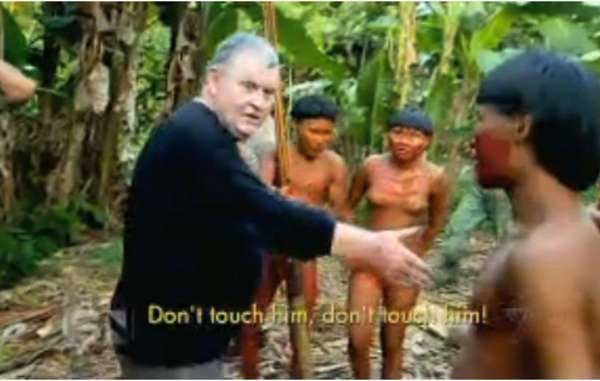It was a story that was supposed to have everything. In the deep, dark wilderness of the Amazonian rainforest, a tribe living outside the bounds of modernity were accused of practicing infanticide, murdering children born disabled or to single mothers, burying them alive or abandoning them to be eaten alive by wild jaguars.
But now the Federal Court of Australia has upheld findings made by the Australian Communications and Media Authority (ACMA) that the story – aired by Channel Seven’s Sunday Night program – breached the regulatory body’s code of conduct by promoting content likely to provoke intense dislike, serious contempt, and severe ridicule on the basis of ethnic origins or race.
The Court’s decision was made yesterday and is to be released in conjunction with two other cases, both of which saw Seven appeal to the Federal Court after adverse findings by the ACMA.
One of them is from an Adelaide episode of Today Tonight about a beauty clinic, the other, again by Sunday Night, about an Australian shipping company and the deaths of four men in the Gulf of Mexico.
In these two cases, complaints were made by companies portrayed negatively by the reports.
Each of the three judgments saw the Court dismiss Seven’s case and award costs to the ACMA.
In 2011, a complaint was made to the ACMA after Channel Seven Brisbane aired a program in which reporter Tim Noonan travelled to Brazil to document the life of the isolated Suruwaha tribe, accompanied by ‘adventure journalist’ Paul Raffaele.
A scene in the report depicts Noonan and Raffaele allegedly being threated with murder by members of the Suruwaha tribe, at which point a voiceover remarks: “Here, we’re outside the protection of Brazilian law.”
ACMA found that claim was presented as a fact, despite Brazilian legislation indicating that was not the case. Seven claimed that, given the assertion was based on an assessment of the future (the assertion being that if the journalists were murdered, their murders would not be investigated by Brazilian authorities) the quote was self-evidently an opinion.

At another moment in the program Raffaele says, “The Suruwaha believe that children born with birth defects or born to a single mother are evil spirits and should be killed in the most gruesome possible way.”
Again, the ACMA found this claim was presented as a statement of fact when it should have been shown as contested opinion, a finding Seven itself contested by arguing testimony presented by another member of the tribe balanced the claim.
ACMA, however, found the presentation of the statements was problematic.
“In these circumstances there is a substantial body of information indicating that the matters presented as undisputed fact are, in fact, disputed,” ACMA argued.
Seven reiterated its belief to the Court that the comments were clearly not presented as statement of fact, and that current affairs programs are not obliged to present all, or even opposing, viewpoints.
In September 2012, Seven filed an application for judicial review with the Federal Court claiming the ACMA had administered “errors of law” and “undertaken and improper exercise of power”.
The ACMA report found that accusations made that the Suruwaha were engaging in acts described as “the worst human rights violations in the world” would have provoked intense dislike and serious contempt for the group, thus breaching section 1.9.6 of the Commercial Television Industry Code of Practice.
Survival International, the group which made the complaint against Seven and who campaign against racist representations of tribal people around the world, welcomed the decision on their website, quoting Director Stephen Corry.
“Unfortunately the myth of the ‘Brutal Savage’ is rearing its ugly head once more – and it’s just as harmful now as it was then,” Corry said.
“It is right and proper that this ruling has been upheld. There is no excuse for such extreme prejudice in the media today.”
At the time of ACMA’s finding, Corry described the program as “one of the worst reports about contemporary tribal people [Survival] has ever seen. The Indians were made out to be cruel and inhuman monsters, in the spirit of 19th century colonialist scorn for 'primitive savages.'"
Questions put to Seven have not yet been responded to. It is unclear whether the network will appeal the decisions, as it did after the ACMA found it had contravened the Tobacco Advertising Prohibition Act in 2010.
Update, June 25: A spokesperson for Seven has provided the following statement:
"Seven is disappointed by the court's findings as each of them concerned quality stories on matters of important public interest, health and safety. Seven is considering its options and so is unable to comment further at this stage."
Donate To New Matilda
New Matilda is a small, independent media outlet. We survive through reader contributions, and never losing a lawsuit. If you got something from this article, giving something back helps us to continue speaking truth to power. Every little bit counts.



